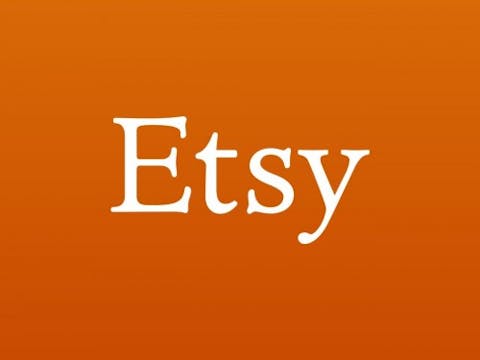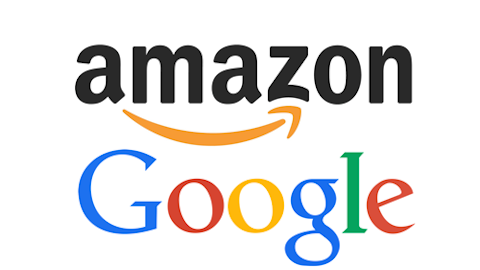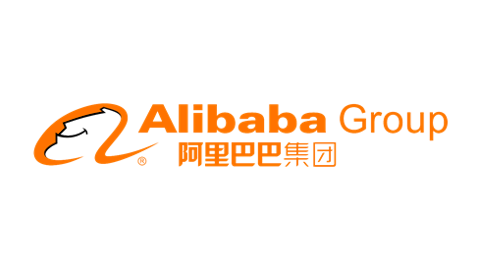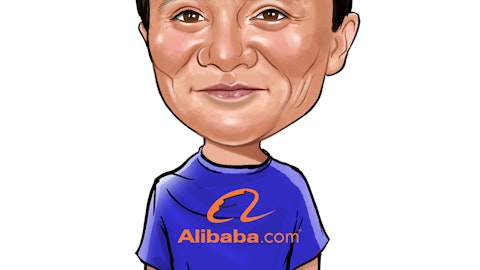Etsy filed for an initial public offering (IPO) with the Securities and Exchange Commission on Wednesday in a Form S-1, as the third-party online marketplace goes public with the goal of raising $100 million. The news will likely be the nail in the coffin for old users of the site, who drove its popularity with hand-crafted items. Many of them believe the site has since sold its soul, as it’s become overpopulated with sellers flooding the site with cheap, mass-produced items, even as Etsy itself said in its filing that its mission is to build a “human, authentic and community-centric global and local marketplace,” and that its brand could be in jeopardy if it deviates from that.

Etsy’s financial statements released to the public as part of the filing process show that a transition is indeed underway at the company, as it makes less money from selling items to buyers, and more money from selling services to sellers. The financials look solid from an investment point of view: revenue in 2014 was up 56.4% to $195.59 million from 2013’s $125.02 million. That’s also nearly a three-fold increase from its $74.60 million in revenue in 2012. The company has $88.84 million in cash, and net loss is manageable, at $15.4 million in 2014. While the company boasts 1.4 million active sellers in its marketplace, selling their wares to 19.8 million active buyers, they very loosely define “active” as anyone who has made a purchase or sale within the past 12 months.
While the growth is solid, Etsy still pales in comparison to its bigger rivals Amazon.com, Inc. (NASDAQ:AMZN), eBay Inc (NASDAQ:EBAY), and the globally expanding Alibaba Group Holding Ltd (NYSE:BABA), which runs the Chinese e-commerce websites Taobao and Tmall. As Etsy adopts a model closer to that of those larger rivals, the question has to be raised of just how much more growth it can achieve.
It will be interesting to see what hedge funds think of the company’s financials and how it stacks up in the online marketplace compared to its rivals, as hedge funds have proven their capabilities when it comes to choosing winning small-cap stocks. Their top small-cap picks have outperformed the market by double digits annually, and they have much greater success with those stocks in terms of returns than with large-cap stocks.
While we can’t get their input immediately, we can see what they think of Etsy’s bigger, large-cap rivals. Let’s start with Alibaba Group Holding Ltd (NYSE:BABA), which had a famous IPO of its own just a few months ago. Alibaba Group Holding Ltd (NYSE:BABA) was one of the most popular stocks among funds at the end of the third quarter, shortly after its record-breaking IPO. 110 funds had positions in the company, with $7.69 billion invested in aggregate. However, those figures fell to just 90 funds with $7.11 billion invested by the end of the year, as many investors apparently felt the fast, easy money had been made.
While Alibaba Group Holding Ltd (NYSE:BABA) has had a rough year-to-date following disappointing financial results at the end of January, it appears to be a strong candidate for long-term growth and is already making major moves towards those aims, including opening its first data center in Silicon Valley this week, as well as taking an 8% stake worth $383 million in Chinese film and television production company Enlight Media. Dan Loeb is currently the most bullish investor in Alibaba among funds we track, with ownership of 10.0 million shares at the end of 2014.
Next is Amazon.com, Inc. (NASDAQ:AMZN), the behemoth of online retailers that has long been maligned by investors for its inability to turn its massive operations and revenues into any kind of significant earnings. Like Alibaba, Amazon.com, Inc. (NASDAQ:AMZN) is in the midst of trying to expand its presence internationally, even going so far as to open a store on its rival’s Chinese marketplace.

There was strong interest in Amazon among funds from our database last quarter, with fund ownership increasing to 76 from 66, and capital invested ballooning to $5.91 billion from just $4.49 billion, despite Amazon shares dipping slightly during the quarter, down by 3.58%. A strong earnings report in late January (and one which showed significant earnings growth of 18% when excluding currency fluctuations) led to a large pop in Amazon’s stock, with shares increasing by 22.47% year-to-date. Lansdowne Partners is the largest shareholder among hedge funds that we track, with 2.73 million shares, as of the end of 2014
Lastly is eBay Inc (NASDAQ:EBAY), which did battle with activist investor Carl Icahn throughout 2014 before finally succumbing to one of his demands and agreeing to spin off its PayPal division near the end of the third quarter. Icahn was the largest shareholder of eBay at the end of the year, with ownership of 46.27 million shares.
Despite the announcement, fund ownership slipped slightly throughout the fourth quarter, down to 87 funds from 90, while gaining slightly in capital inflow to $11.26 billion from $11.11 billion. However the stock’s gain of 8.65% compared to just a 1.4% increase in capital during the quarter means that funds retained less shares at the end of the year than they did at the end of the third quarter. Some were spooked off by Apple’s release of its Pay platform in early October, as eBay shares tanked until the middle of the month before rebounding.
Can Etsy compete with these behemoths? Is it a wise investment? We’ll continue to monitor its IPO and the reaction of funds in the coming weeks.
Disclosure: None





